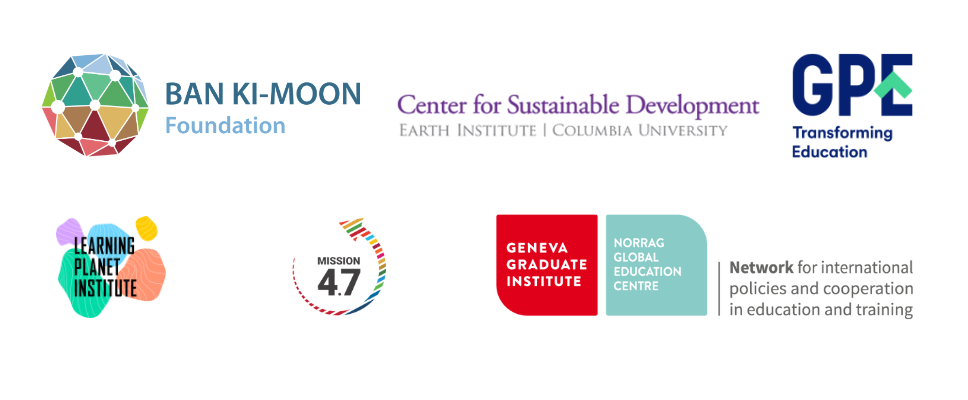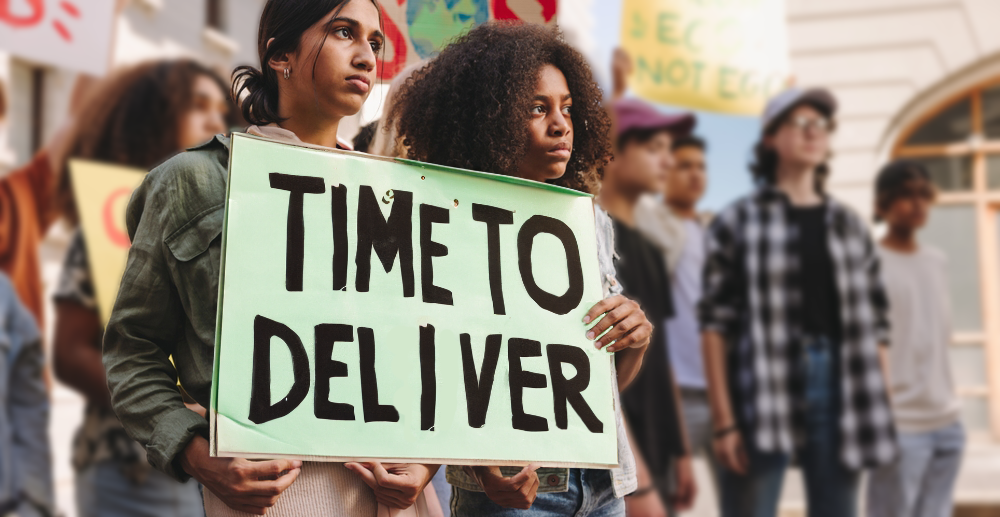Event Highlights: Meaningful Youth Engagement - Time to Deliver
Launching NORRAG’s “Meaningful Youth Engagement: Time to Deliver” Policy Insights
On Sunday, 22 September 2024, on the sidelines of the Summit of the Future, NORRAG launched its latest Policy Insights titled “Meaningful Youth Engagement: Time to Deliver”, with a hybrid launch event gathering authors, experts, and partners. The event was co-organised with the Ban Ki-moon Foundation, Columbia University’s Center for Sustainable Development, the Global Partnership for Education (GPE), the Learning Planet Alliance, and Mission 4.7.
The event began with a brief introduction by NORRAG’s Executive Director Moira Faul, who presented NORRAG’s four institutional themes and emphasised the youth’s critical role in global innovations and disruptions.
The event proceeded with a high-level welcome address by H.E. Dr Jarso Jallah, the Minister of Education of the Republic of Liberia. Dr Jallah highlighted the importance of placing collective emphasis on meaningful youth engagement, stressing that “that’s what drives the next architecture of what the global world is going to look like” and that the youth must be given access to opportunities and the policy table.
The panel proceeded introducing the speakers and central themes of the event by Carolina Earle, moderator, and NORRAG’s Youth Engagement Specialist. Earle asked the participants to consider who was and who was not allowed to speak at the Summit of the Future. Simply put, who was and who was not invited to the table?
Bridging the Gap Implementers
Kate Landon, Executive Director, Ban Ki-moon Foundation: Landon discussed the role of the Ban Ki-moon Foundation in creating concrete and tested ways to engage with the youth at the institutional level meaningfully. Landon highlighted some common challenges young leaders face, mainly lack of financial resources, logistical support, influence, and the tendency of leaders across sectors to tokenize the youth while remaining unaccountable to it.
Edward Stevenette, Learning Planet Institute: Stevenette highlighted that partnership is the new form of leadership in today’s world. At the institutional level, organizations like his focus on involving the youth through intergenerational partnerships that leave no one behind. According to Stevenette, institutions must not simply provide a space for young people to be but also assist them as their initiatives change. As he says, ideas are not static, and young people need to know they can be supported as their initiatives evolve.
Foluyinka Fakoya, Global Partnership for Education (GPE): Fakoya argued that the key to successfully engaging the youth in decision-making lies in treating them as equal stakeholders, just like teachers and private sector partners are. By treating young people like adults and connecting them to policymakers, the youth can successfully have a say at the table. According to Fakoya, “We really think about young people when we work with them, not just as young people with lived experience, but also as experts.”
When asked by Earle about what key takeaways they wish to bring to the table, this is what the panelists had to say:
Kate Landon advocated bridging the action and collaboration gap between private philanthropy, the UN ecosystem, and multilateral funding sources.
Edward Stevenette stressed that while the youth is often asked to be the voice of their whole generation, we should ensure that when they are engaged in the discussion, they bring insights from the wider system. Stevenette also encouraged bringing successful examples of youth-led ideas turned into action to the UN to demonstrate that investing in young people can generate impactful results.
Foluyinka Fakoya argued that we should employ inclusive follow-ups to ensure that the ideas generated by events such as the Summit of the Future are domesticated and correctly enforced.
H.E. Dr Jarso Jallah concluded this panel section by calling on young people to not simply be at the table but build their tables in their countries.
Youth Change Agents
Following the first panel section dedicated to institutional approaches to meaningful youth engagement, Carolina Earle introduced five youth change agents to discuss their experiences and ways for decision-makers to improve their relationships with young people:
Anna Bella Sabilah, GPE Indonesia: Sabilah, who began her advocacy career as a university activist fighting against sexual violence and harassment, has become a powerful voice thanks to her efforts to make Indonesian education more inclusive and representative of the country’s diversity. Sabilah is primarily concerned with the right to education of Indigenous children and youth. According to Sabilah, decision-makers and institutions must engage in intergenerational and intersectional dialogue with the youth to ensure that educational opportunities leave no one behind, especially Indigenous communities and that the youth’s lived experiences are considered for successful systemic change.
Yasmina Benslimane, Founder, Politics4Her, Author of Creating Space for Young Women and Girls from the Global Majority in Governance Processes: Benslimane’s words tell of the seeming hopelessness many youth activists feel in their fight for change. She says, “We are not just exhausted. We are also heartbroken. We don’t understand why there’s no action,” adding, “We crave intergenerational partnership and dialogue. We crave meaningful youth engagement.” Benslimane stressed that while she does not want to be at the table, as she feels like she is just repeating herself, she has a duty to take advantage of the platform for those who do not have such a privilege. Benslimane called for two main changes: to end the tokenization of young people and to move UN events away from the Global North.
Peace Monica Pimer, Executive Director, Nile Girls Forum, author of Meaningful Engagement with the Global South in United Nations and Local Governance Processes: Pimer called for increased representation of young girls and women in global discussions and to tackle the challenges they face in their home countries to participate in such conversations. Pimer says it is critical to “engage young people in co-creating solutions and platforms because we believe that the solution is closer to the people that have to deal with all these issues.”
Makanalani Gomes, Ban Ki-moon Foundation: Gomes applauded the establishment of the UN Permanent Forum on Indigenous Issues (UNPFII) as an instrument to increase youth Indigenous participation in global decision-making. Most importantly, to Gomes, young Indigenous people can bring new approaches to global youth partnerships by integrating core Indigenous values of relationship-building and nurturing and incorporating them into the UN ecosystem. Gomes concluded by calling on policymakers to “Unite with us. Align yourself with Indigenous youth. Listen to us. Learn from us and respectfully partner with us.”
Concluding Remarks
Radhika Iyengar, Chair, Mission 4.7, concluded by emphasizing that youth organizations must collaborate, partner, and influence each other’s work to bring about global change.
Moira Faul, Executive Director of NORRAG, concluded by thanking the speakers and introducing NORRAG’s fifth edition of Policy Insights, “Meaningful Youth Engagement: Time to Deliver.”
Partners


